Will Flatbush Gardens' cycle of disrepair end with another sale?
The massive, 59-building complex can reportedly be had for $425 million. It comes with over 4,000 violations and unhappy tenants.
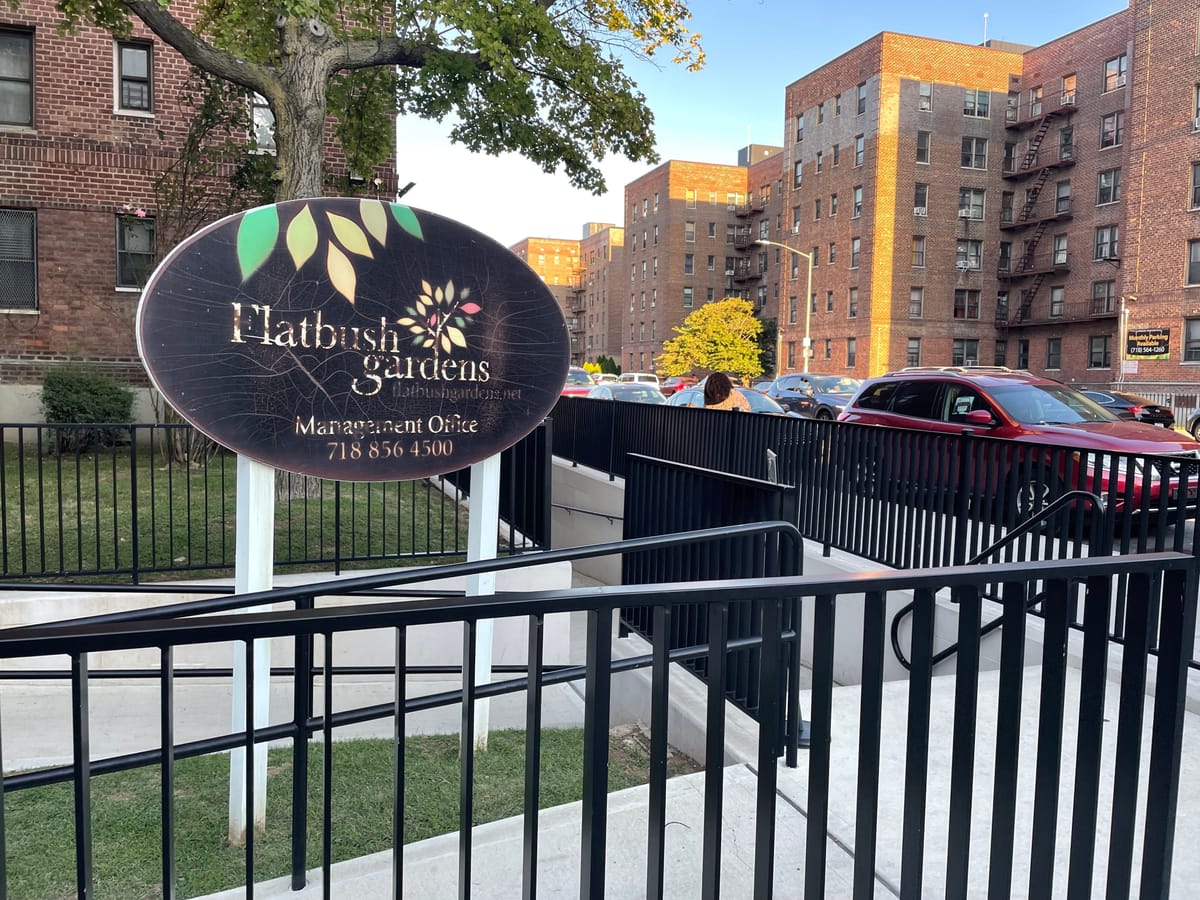
On a Wednesday night in early September, two dozen tenants gathered in the basement of one of 59 identical-looking buildings in East Flatbush. For months, many had been pleading with the owner who oversees their complex of 2,500 mostly rent-stabilized units for better living conditions. And now they wondered if those pleas will ever be answered.
At the front of the room, tenant association leader Marietta Small had just delivered the news: The buildings’ owner, Clipper Equity, had put their homes on the market. Flatbush Gardens, the housing complex where over 10,000 residents live, is reportedly for sale for $425 million.
The news comes in the wake of calls to end deteriorating conditions at the property. That evening, resident after resident told of mice and roaches in their units, garbage and old furniture blocking their hallways, and filthy courtyards where dog feces and empty liquor bottles decompose. Many said they have not felt safe in their apartments recently as their building doors don’t properly lock and a new intercom system gives out their personal phone numbers to anyone at the door. Others told of months-old damage to their apartments from leaky ceilings and broken pipes that management has yet to fix.
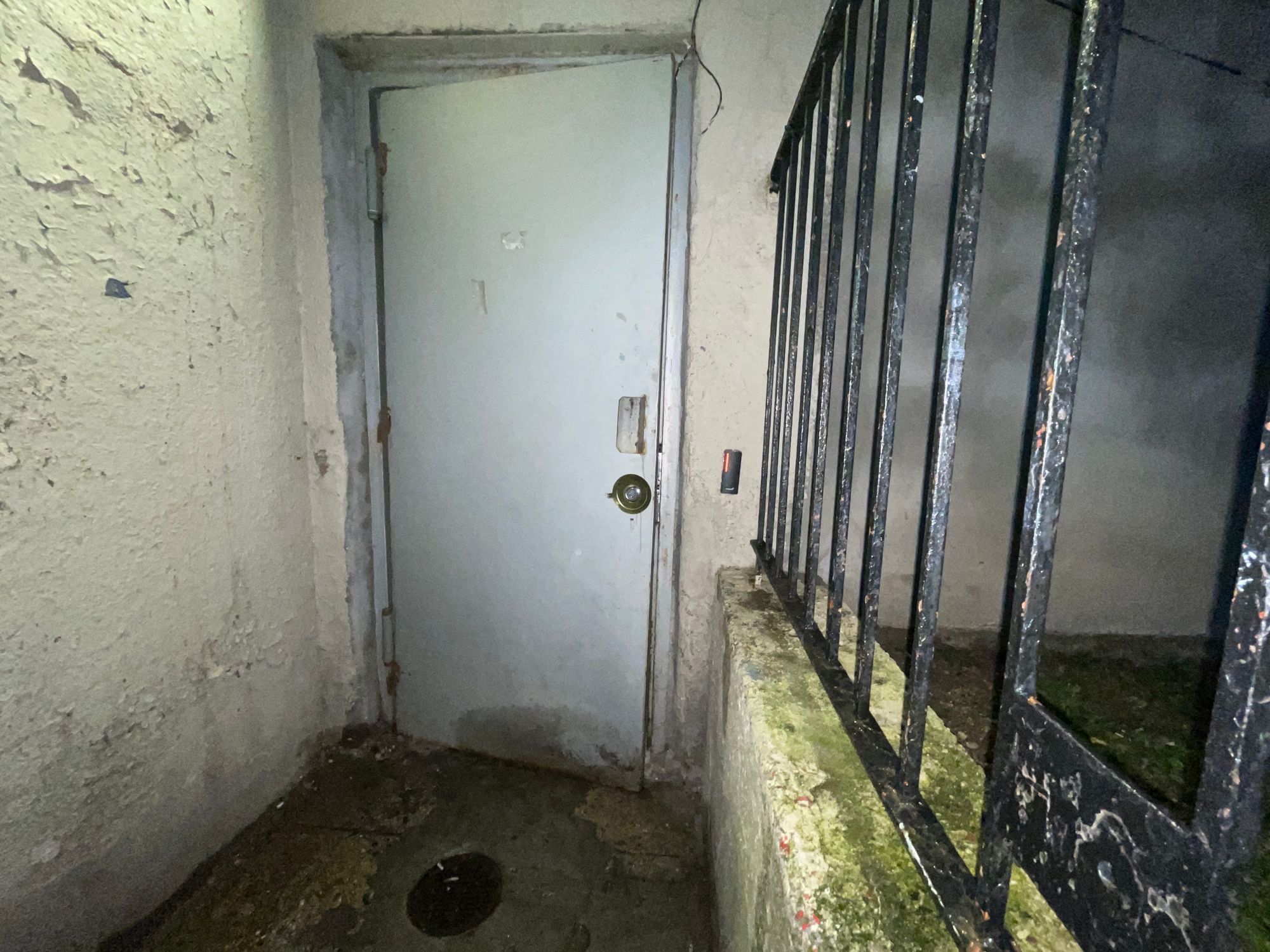
“I’ve been here 40 years. I remember when the place was really beautiful,” said Small. In recent years, maintenance issues have gone unrepaired for months, she said, and the building’s manager, Jacob Bistricer, chief operating officer of Clipper Equity, and his father, David Bistricer, who runs the firm, have also been very slow to respond to tenants’ needs. (Bklyner sent emails to both Bistricers, Clipper Equity, and Flatbush Gardens management, but did not hear back. Phone calls to the Bistricers went unanswered, and no answering machines were set up.)
Today, Flatbush Gardens’ 59 buildings have over 4,000 open housing code violations listed in the city’s housing departments’ database. Over 1,200 of those violations are classified as immediately hazardous, meaning they pose a direct threat to tenants’ health or safety, and include broken doors, leaking roofs, and a lack of heat or hot water. These violations come from tenants who call 311 to report an issue in their apartments or buildings to HPD, which then determines the severity of the complaint and sends a notice to the owner. Violations of all classifications, including the most urgent, have remained open for months, even years.
“For $425 million, they’ve got a lot of violations,” Small said.
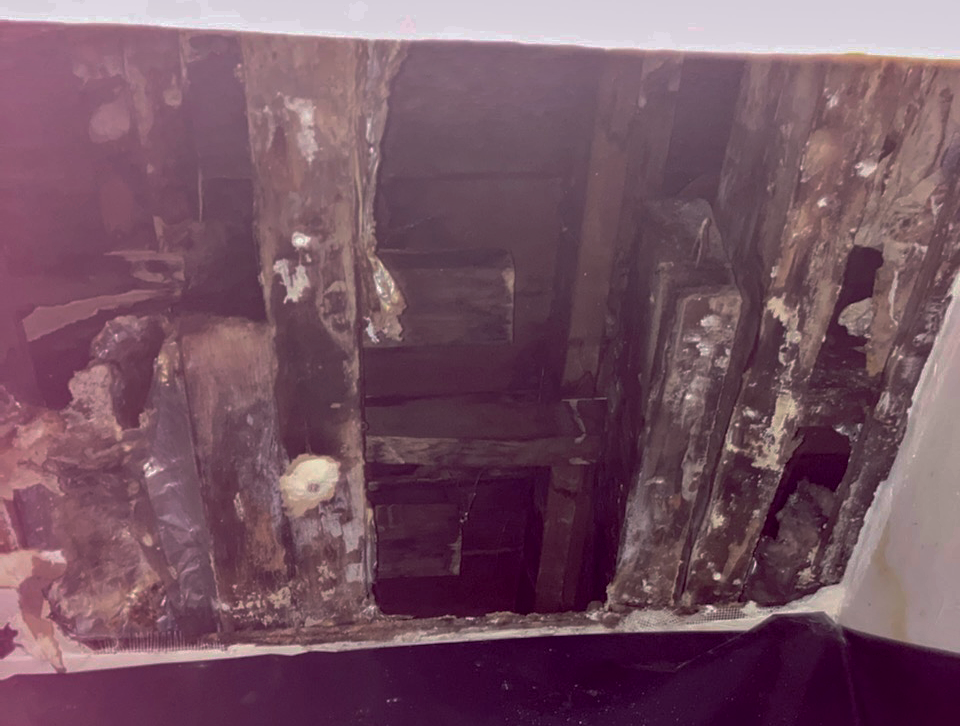
Ahead of a possible sale, Public Advocate Jumaane Williams and local Council Member Farah Louis have called on the Bistricers to fix the buildings’ outstanding violations immediately. In mid-September, two weeks after the sale listing was reported, Williams sent a letter calling on the younger Bistricer to rectify what he called “intolerable” conditions in the buildings, including a lack of security, infestation of rats and rodents, and unsanitary conditions. Louis, who has been the local council member since 2019, said in an email that Clipper Equity’s initiation of the sale “demonstrates the property owner is attempting to escape their responsibilities in keeping their units habitable.”
For tenant Shirley Benjamin, another sale would mean the continuation of a cycle she already knows well. “They go from one owner to the next owner to the next owner to the next, and everybody just comes and takes, takes, takes,” she said. “They take and then they go away.”
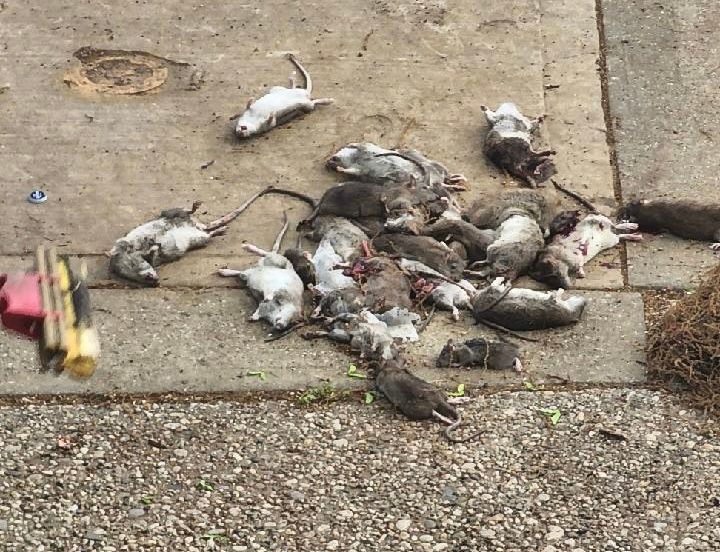
Several owners have cycled through in the 26 years Benjamin has lived at Flatbush Gardens, but the property’s disrepair has never been far from the spotlight. In Clipper Equity’s 17 years of ownership, the firm’s chief executive, David Bistricer, has faced multiple controversies, including being placed on then-Public Advocate Bill de Blasio’s “worst landlords” list in 2010 and being forced by federal injunction to end a lockout of unionized building workers in 2014. However, his reign has also seen a significant reduction in the property’s code violations. When Clipper Equity bought the complex from a California pension fund in 2005, it had over 8,000 housing code violations, according to the firm’s investor materials from June 2021. Bistricer has managed to half that number.
Even so, new issues continue to arise. If Clipper Equity does not conduct necessary repairs within HPD’s set timeline, the firm could face civil penalties, which can reach more than $250 per day for immediately hazardous violations, according to the department’s website.
But owners only pay these fines if the department seeks enforcement in housing court, which happens in only a fraction of housing violation cases, according to the 2022 Mayor’s Management Report. And ahead of a possible sale, nothing HPD does assures that owners rectify violations before the property changes hands, said Greg Baltz, director of the Housing Justice and Tenant Solidarity Clinic at Rutgers Law School. Though owners may pay fines for overdue violations, there’s no legal mechanism nor city program that ensures that building owners correct violations or pay civil penalties when a property is sold between private parties, Baltz said.
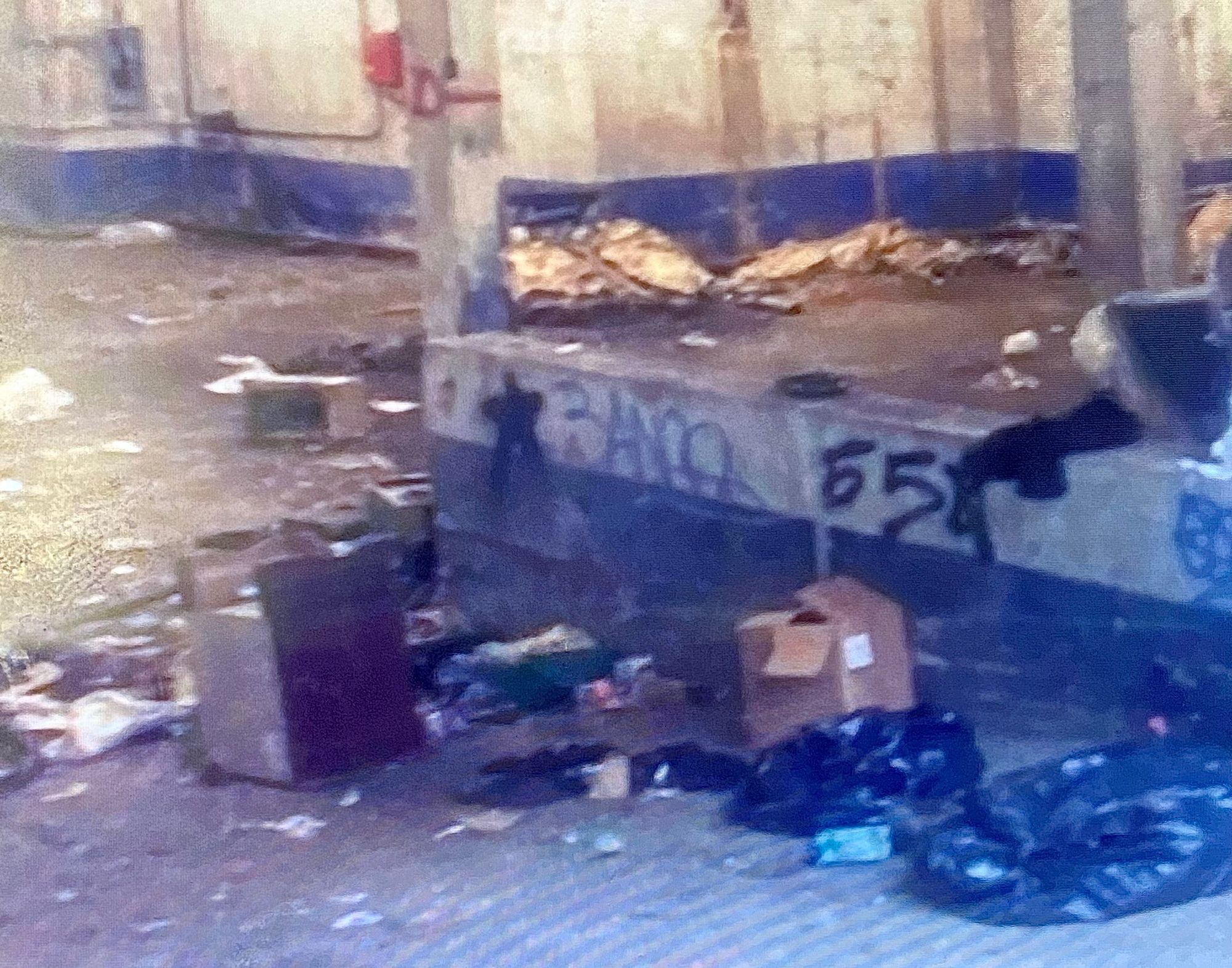
Over the summer, Small and the tenant association organized two protests over the buildings’ conditions. Since then, Small said management has been more responsive to complaints, and Jacob Bistricer has reached out to meet with her. One win was in August, when the management office expanded their hours from three hours a week to a traditional five-day schedule, she said.
To Small, the solution is more organizing and empowering tenants to demand change. Whether a sale goes through or not, Small remains hopeful that conditions will improve. “I think things will get better, or somewhat better anyway,” said Small. “Like I tell the tenants: When you organize and unite, you can get stuff.”



